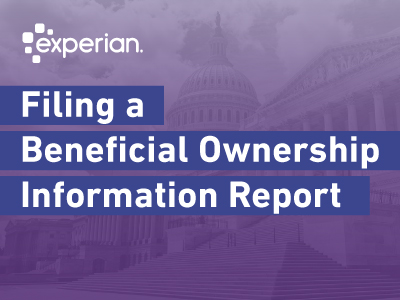Business Credit Education
articles and videos about business credit education
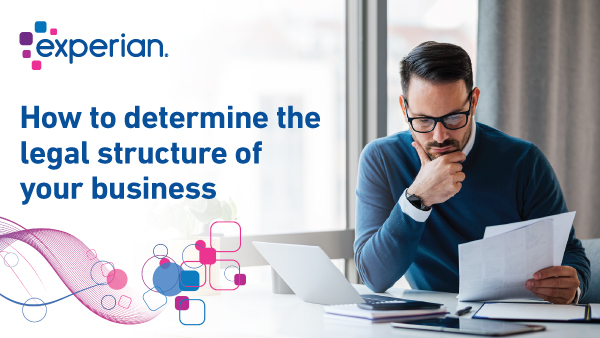
The legal structure of a business is one of the biggest decisions you'll make as a small business owner. Get information on the most common types, with pros and cons.

Separating business and personal finances is not just an option, it's a vital step towards safeguarding your assets, building a strong credit foundation, and gaining control over your business's financial health.

Both businesses and individual consumers have credit scores that reflect how they’ve historically used credit. Lenders and others use these scores to help determine creditworthiness and make decisions based on what they see. Your Business credit score is based on different information than personal credit scores and use a different scoring system. Learn now to check your business credit score. How Do Business Credit Scores Work? Business credit bureaus use information from a wide range of sources to compile business credit reports, which are then used to generate business credit scores. Data in business credit reports may come from your business’s creditors; its vendors and suppliers; public records and court filings; and collection agencies. For instance, Experian business credit reports show data such as location and contact information, time in business, the company’s Standard Industrial Classification (SIC) and North American Industrial Classification System (NAICS) codes, annual sales and number of employees. It will also show any judgments, UCC filings or tax liens against your company and any accounts in collections. Finally, it looks at how you handle commercial credit payments on loans, credit cards, and bank or trade lines of credit. Each business credit reporting agency weighs the information in your credit report differently and uses its own unique method to calculate your credit score. For example, Experian calculates your business credit score based on: Credit: Number of trade accounts, outstanding balances, payment behaviors, credit utilization and trends over time Public records: How recent and how frequent any liens, judgments or bankruptcies are and how much money was involved Demographics: The number of years you’ve been in business, your SIC and NAICS codes and the size of the business Experian Business Credit Scores range from 1 to 100. As with consumer credit scores, higher scores signify better credit. Where Can I Check My Business Credit Score? You can check your Experian business credit score by purchasing a one-time copy of your credit report or signing up for business credit monitoring, including unlimited access to scores. Reasons to Check Your Business Credit Score Prevents fraud: Monitoring your business credit score can reveal potential fraud or identity theft. A new account you don’t recognize, an application for credit you didn't make, or inaccurate information could be a sign of fraudulent activity. Contact the credit bureau if you see anything amiss on your business credit report. Monitors business health: Your business credit score is an indicator of the financial health of your business. A good business credit score can open doors, giving you access to more credit, lower interest rates and better loan terms. Your business credit may be the deciding factor in whether you get approved for a lease or for trade credit. Regularly checking your business credit score gives you a sense of where your business stands and how successful your applications for credit are likely to be. Safeguards your personal assets: Without a good business credit score, you may need to personally guarantee business loans or use your personal credit score to apply for business credit. This could put your personal assets—and personal credit score—at risk if your business suffers a downturn and you can’t pay these bills. A good business credit score can help you get credit in your business’s name, protecting your personal assets. How to Establish and Build Business Credit Start establishing a business credit history by legally registering your business and getting an employer identification number (EIN) from the IRS. Open business bank accounts, leases, utility services and other accounts in your business’s name, rather than your own. You can begin to build business credit by making moves such as getting a business credit card and requesting trade credit from suppliers, then making your payments on time. For these payments to help your business credit score, you’ll need to work with companies that report to business credit bureaus. Not all of them do, but companies are often willing to do so if you ask. As with personal credit, paying your creditors on time is key to improving your business credit score. You should also check your business credit score regularly, making sure the information in your credit report is correct and current. Keep Your Business Credit Score Healthy Regularly monitoring your business credit score helps keep a pulse on the health of your business—but as a business owner, you already have a lot on your plate. For a convenient way to track your credit score, sign up for business credit monitoring services such as Experian’s Business Credit AdvantageSM. It provides alerts whenever your business credit score changes and early warnings of potential fraud to give you peace of mind. Plus you get unlimited access to your business credit report and score all year long. About the author Karen Axelton Drawing on 20-plus years of experience as a journalist, business magazine editor, and marketing copywriter, Karen Axelton specializes in writing about business and entrepreneurship. She has created content for companies including American Express, Bank of America, MetLife, Amazon, Cox Media, Intel, Intuit, Microsoft and Xerox.
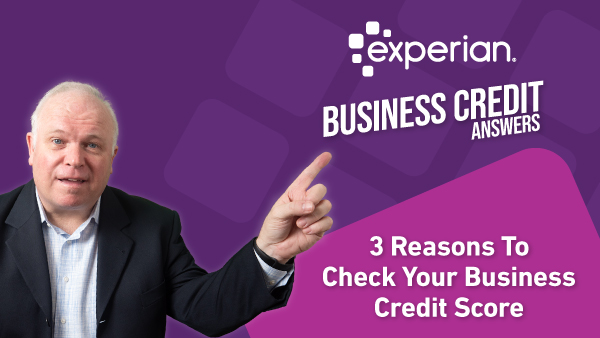
Regularly checking your business credit score helps protect both you and your business in several ways. We cover three primary reasons in this post.
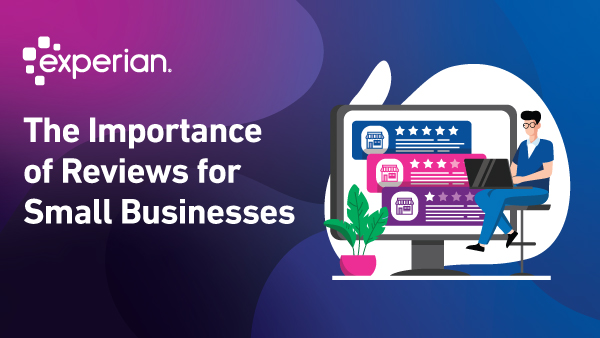
Nearly 9 in 10 consumers have read online reviews to determine the quality of a local business, and 39% do so on a regular basis.
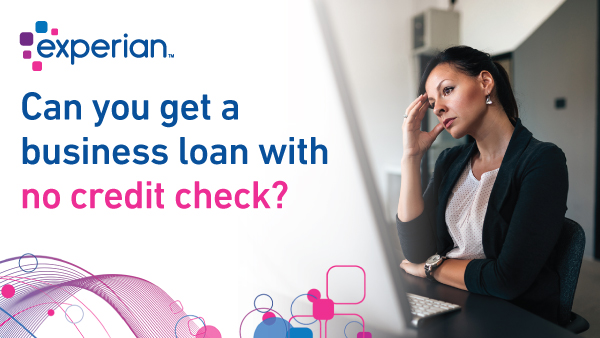
As a small business owner, finding capital to build your business is one of your top priorities. But if you don't yet have a business credit history and your personal credit history needs some work, it can be difficult to get approved for most business financing options. You can still find a way to get a business loan with no credit check, but it will likely cost you more to do so. There are some business funding options you can pursue that may not require a business credit check. Here's what you need to know about those options and how to improve your chances of getting affordable financing for your company. How a Business Loan Differs From a Personal Loan Some new business owners use personal loans to start a business. Both personal loans and business loans typically require a credit check, but some business lenders may review both your personal credit score and your business credit history. If your business is new, or if you are a sole proprietor, your personal credit history will be more heavily relied upon. Business loans and personal loans differ in the following ways: Collateral: While most personal loans are unsecured, many small business loans require that you put up collateral. Additionally, many commercial lenders also require a personal guarantee, which means that you're personally liable to pay back the debt if your business can't pay. Building credit: Personal loans can be a great way to build your personal credit score, but small business loans are better if you want to build a business credit history. Keep in mind, though, that not all commercial lenders and financing options will report to the commercial credit bureaus. Do your research to make sure you're getting credit for your on-time payments. For both personal and business loans, there are some alternative financing sources that don't require a credit check at all. These loans typically involve some risk, and you’re likely to pay more in interest rates and fees on the loans. Business Financing Options That Don't Require a Credit Check Standard business loans from a bank, credit union or even online lender typically require a credit check. If your credit is less than stellar, these may be out of the question. However, there are other funding options to consider that might be a good fit for your needs. Microloans Microloans are small-dollar loans offered by nonprofit organizations that are designed to help new, small or disadvantaged businesses. These loans often don't require a credit check, and they may even charge low-interest rates or no interest at all. That said, they're typically reserved for startups, and you may need to meet other requirements, such as having family members and friends act as peer-to-peer lenders . Also, loans are typically capped at $10,000 to $15,000, depending on the organization. Vendor Credit If you regularly purchase supplies or inventory from vendors, you may be able to set up a trade credit account with them. This can allow you to pay your bill 30 days or more after your purchase date. In some cases, vendors will report your payments to one or more of the commercial credit bureaus including Experian. That said, some vendors may require a credit check—or at least a history of on-time payments with other vendors —so you may need to shop around to find one that will work with you. Invoice Factoring If your business gets paid by clients through invoicing, this could be worth considering. Invoice factoring involves a small business owner selling an invoice to a factoring company in exchange for an upfront payment based on a percentage of the invoice amount. In return, the factoring company takes over collecting the payment from your client, after which it pays the remaining balance minus fees and interest. Invoice factoring doesn't require a credit check because it's not technically a loan. It can be an easy way to get paid faster for work you've already done, but it's important to note that it could impact your relationship with your client, especially if they pay late or have a poor experience with the factoring company. Merchant Cash Advance A merchant cash advance (MCA) is also technically not a loan; rather, it's an advance on your future sales. In exchange for an upfront payment, MCA providers will take a percentage of your daily credit and debit card sales or a fixed daily or weekly payment from your bank account. MCAs can be easy to get, even with bad credit, because the provider is more concerned about your sales record than your credit history. That said, merchant cash advance APRs can climb into the triple digits if you're not careful, so it's generally best to avoid them in most cases. Make It a Goal to Build Business Credit for the Future Even if you need a business loan with no credit check right now, it's a good idea to prioritize building both your personal and business credit to widen your selection of options in the future. It can also help you qualify for lower interest rates and better repayment terms. Review your personal credit report and credit score to see what steps you can take, such as paying down credit card balances, getting caught up on past-due payments, disputing inaccurate credit report information, and more. You may also opt to get a secured credit card to add a more positive payment history to your credit file. For your small business, make sure you're working with lenders that report your payments to the credit bureaus. Many lenders that don't check your credit don't do this, so you may need to establish your business credit profile before you can start building your business credit. As with your personal credit, it's important for your business to pay its bills on time and avoid overextending itself on debt payments. While you might have a hard time getting a bank loan, you can start with business credit cards and vendor credit and then build from there. About the author Ben Luthi has been enthralled by personal finance and travel ever since he spent time abroad in college. He has worked in financial planning, banking and auto finance, and writes about all aspects of money. His work has appeared in Time, Success, USA Today, Credit Karma, NerdWallet, Wirecutter and more.
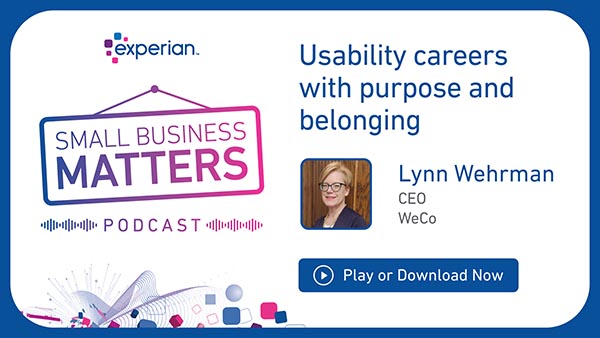
December 3 is International Persons with Disabilities Day. Our podcast this week featuring a discussion with Lynn Wehrman of Minneapolis-based WeCo.
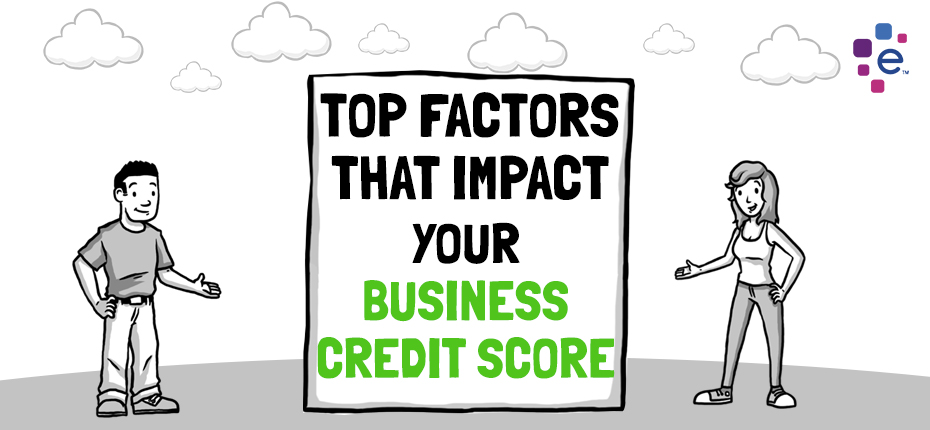
In this business credit education post we cover the top factors that impact business credit your business credit score
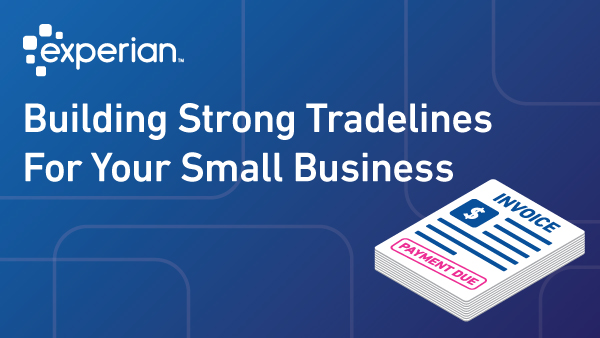
If you're a small business owner, tradelines can be one of your most powerful tools for establishing and strengthening that credit profile. A tradeline is an account between businesses that acts like a loan or line-of cash from vendors to companies without any security involved.
